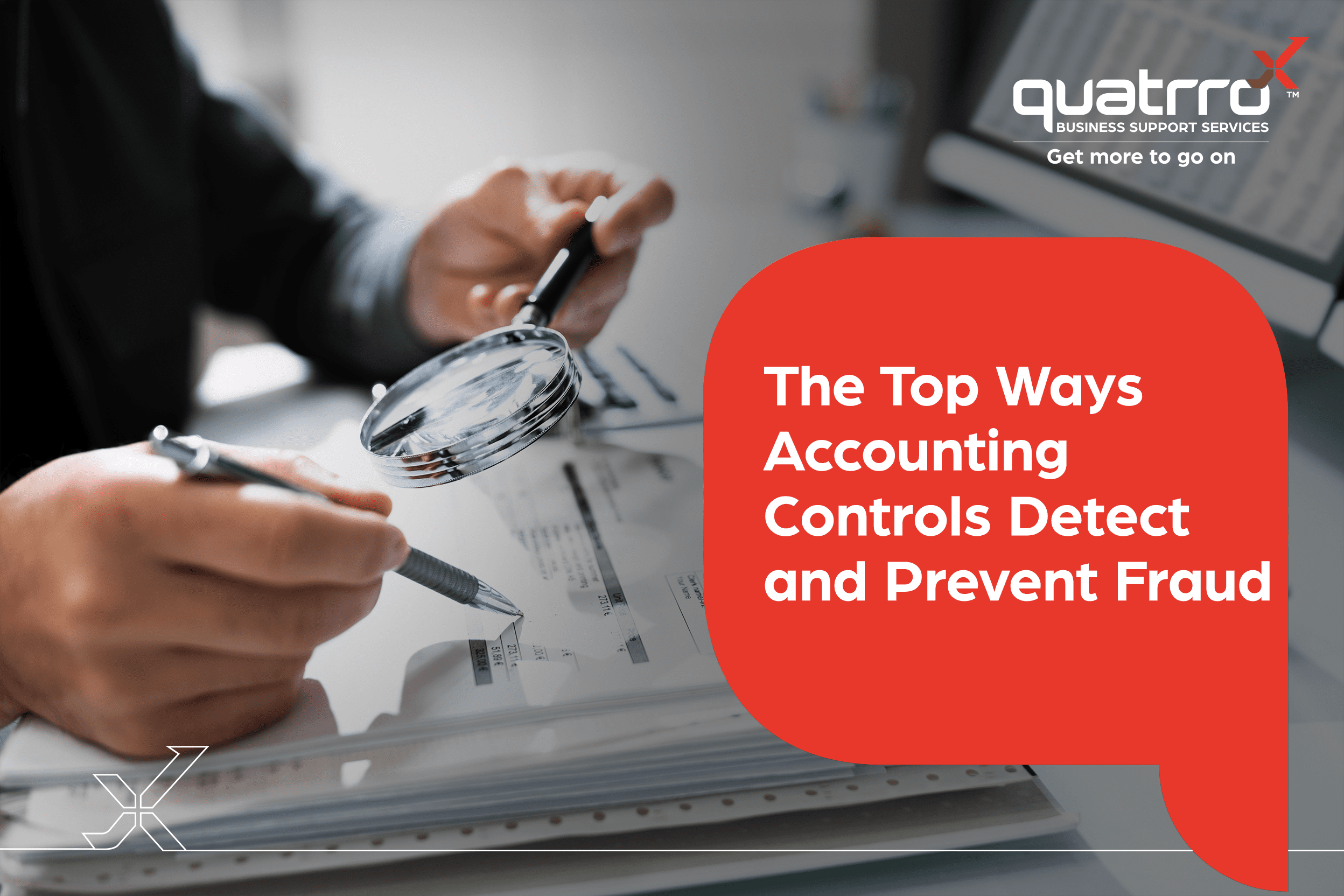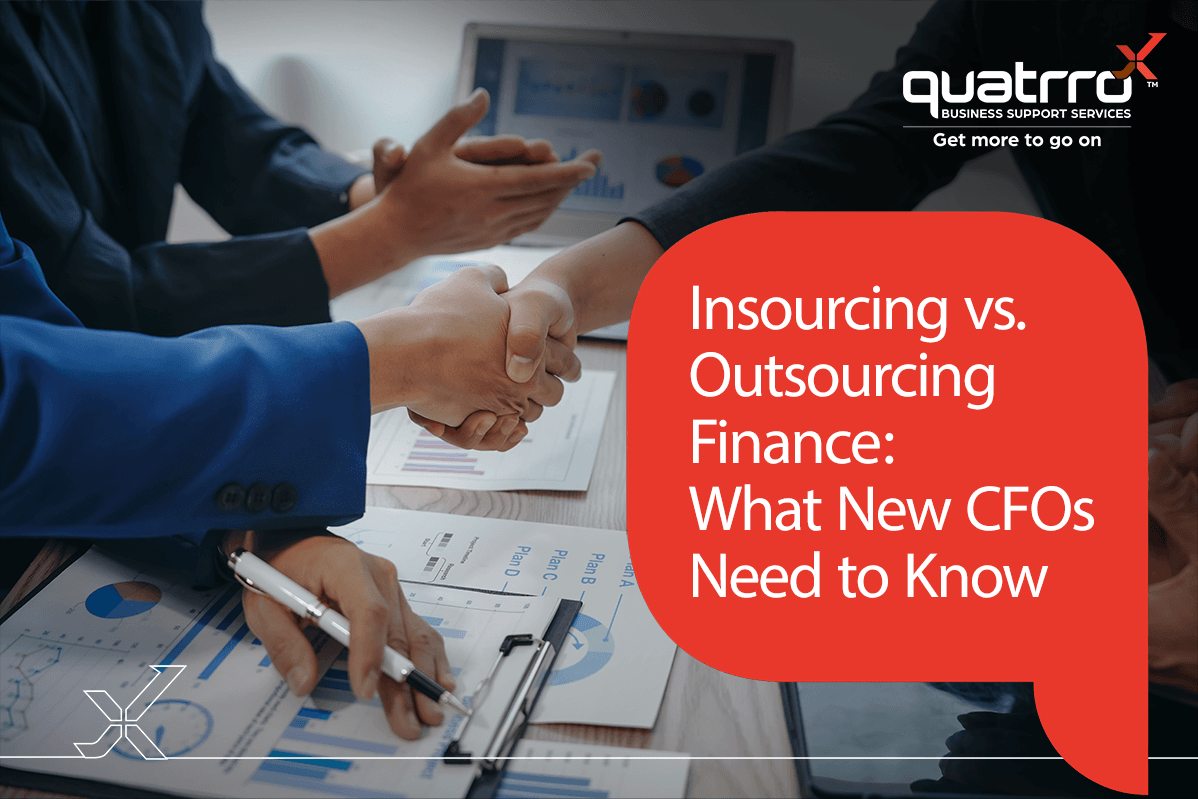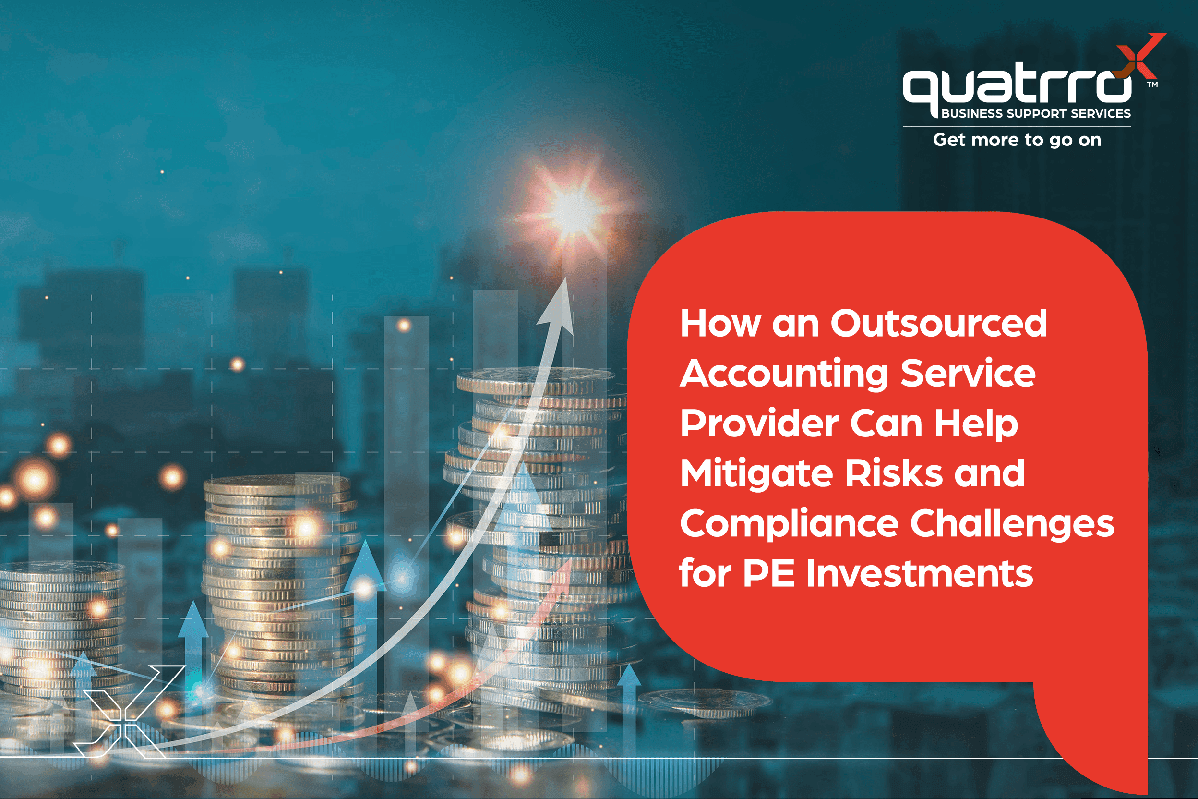Blog Details
The Top Ways Accounting Controls Detect and Prevent Fraud
October 16, 2023

Fraud is a pervasive issue that siphons away billions of dollars from businesses globally each year. Even the biggest and most reputable businesses aren’t immune — in 2022 a former Apple logistics buyer was charged in federal court with defrauding the company for more than $10million dollars. Businesses have to remain vigilant and be proactive in fraud detection and prevention. A strong accounting team and processes are two of the most important assets a business can have in the fight against financial fraud.
What Kinds of Fraud Affect Businesses?
Financial fraud has existed for as long as business itself — one of the earliest recorded cases of insurance fraud happened in 300 B.C., when Hegestratos, a Greek merchant, tried to sink his own ship. Unfortunately for business owners, this longevity has also brought innovation. When reviewing business documents, forensic accountants must be on guard for a variety of different schemes. Here are a few of the most common ones:
 |
Asset MisappropriationArguably the most common form of business fraud, asset misappropriation occurs when employees misuse or take company assets for personal gain. Types of asset misappropriation include:
Forensic accountants typically look for patterns of behavior, such as consistently rounded-up expenses or a higher-than-average number of voided transactions, to catch this kind of fraud. |
 |
Financial Statement FraudThis type of fraud involves manipulating the company's financial statements to present a healthier picture of its financial position than is actually the case. This may be done by employees looking to improve their standing with management or investors. Methods include:
|
 |
Payroll FraudPayroll fraud is another area where companies can be vulnerable. Examples of payroll fraud include managers setting up payroll accounts for fictitious employees and pocketing their salaries, or employees incorrectly claiming overtime hours not worked. |
 |
Procurement FraudThis occurs when employees manipulate the purchasing process for personal gain, to the detriment of the company. Methods include:
|
Why Is Fraud Detection And Prevention So Important?
The short answer, of course, is that financial fraud lowers business profits. But it does so in more ways than one. It’s not just about the money or inventory that’s lost when fraud occurs — fraud can destroy the company’s reputation among customers, scare away potential investors, and affect stock market valuation. Here are some factors to consider:
Erosion of TrustFinancial fraud is a violation of trust, and trust is the backbone of any business relationship—be it with employees, suppliers, or customers. When fraud occurs, it casts a shadow of doubt over the organization's integrity, making stakeholders question its reliability. This erosion of trust can have long-term consequences, including the loss of valuable employees and customers. |
|
 |
Legal ConsequencesFinancial fraud often triggers legal repercussions, which can be devastating for a business. Legal proceedings are not only costly but also time-consuming. The legal fallout can divert key resources away from core business operations, creating a cascading effect that impacts productivity and revenue. |
 |
Operational DisruptionsFraudulent activities can lead to significant operational setbacks. Whether it's the procurement of sub-standard materials or the embezzlement of funds meant for a project, these disruptions can derail timelines and lead to loss of business or increased operational costs. |
 |
Reputational DamageThe negative publicity surrounding a case of financial fraud can be catastrophic for a brand. In an age of social media, news of such incidents spreads rapidly, causing irreversible damage to a company’s reputation. Rebuilding brand image post-fraud is a slow and costly process, and for some businesses, the reputational damage is so severe that recovery is nearly impossible. |
How Do Accounting Controls Prevent and Detect Fraud?
Proper accounting processes and controls are an indispensable tool for combating corporate fraud. Strong accounting leaders and team members can also help businesses create, document and implement processes that minimize risk and discourage fraud. Here’s how a fortified accounting infrastructure plays a critical role in fraud prevention and detection.
 |
Setting Up Internal ControlsA crucial first step in fraud prevention involves the establishment of robust internal controls. A CFO, or an independent third party, can conduct comprehensive internal control studies to identify vulnerabilities within an organization's accounting infrastructure. They should recommend measures that not only deter fraudulent activities but also ensure the fidelity of financial records. Effective internal controls restrict unauthorized access to financial systems and impose multi-level approval processes for significant transactions. |
 |
Fraud Examination and Risk AssessmentsA strong accounting team should perform detailed fraud examinations on a regular basis, focusing on high-risk areas like procurement, sales, deposits, and payroll. These audits go beyond routine financial reviews to scrutinize the nature, timing, and extent of transactions, often revealing subtle signs of fraudulent activity. The team should delve deep into a company's financial records regularly as well, going beyond the surface-level checks of a traditional audit. They need to examine individual transactions, sequence patterns, and trends to identify any discrepancies that could indicate fraudulent activity. The CFO should also provide a risk management framework that informs the organization of its specific vulnerabilities, allowing for targeted remediation, if needed. |
 |
IT Security AuditsIn an increasingly digitized world, cyber threats can pose a significant risk to businesses. CFO’s should regularly collaborate with IT specialists to conduct security audits, ensuring that financial data remains secure. They should identify potential weaknesses in the IT infrastructure that fraudsters could exploit, recommending immediate actions to reinforce these vulnerabilities. |
 |
Management TrainingEducation is a proactive approach to fraud prevention. Strong accounting leaders understand that training programs must be provided to management and employees, equipping them with the skills to recognize early signs of fraud. This training often includes guidelines on internal reporting mechanisms, fostering a corporate culture where transparency and integrity are prized. |
 |
Litigation and Recovery SupportWhen fraud is detected, the race begins to halt further damage and recover lost assets. Depending on the extent of the fraud, this is where it may be useful to leverage a forensic accountant. Forensic accountants provide critical litigation support, working in tandem with legal teams to quantify financial losses and trace misappropriated assets. Their detailed analysis becomes essential evidence in court, and their expertise can significantly influence litigation strategies. |
Implement Accounting Controls For Your Business
A strong, proactive accounting controls approach serves as a critical line of defense against various kinds of business fraud. Its practices have evolved to include advanced techniques and tools designed to detect and prevent fraudulent activities that could otherwise cripple your organization. If you aim to build a secure, fraud-resistant business, integrating forensic accounting best practices into your financial processes is an essential step. See how the world- class accounting teams and personalized services at Quatrro Business Support Services (QBSS) can help your business thrive today.








